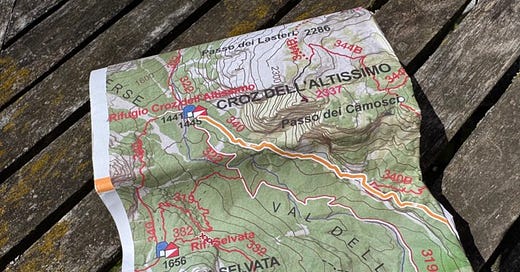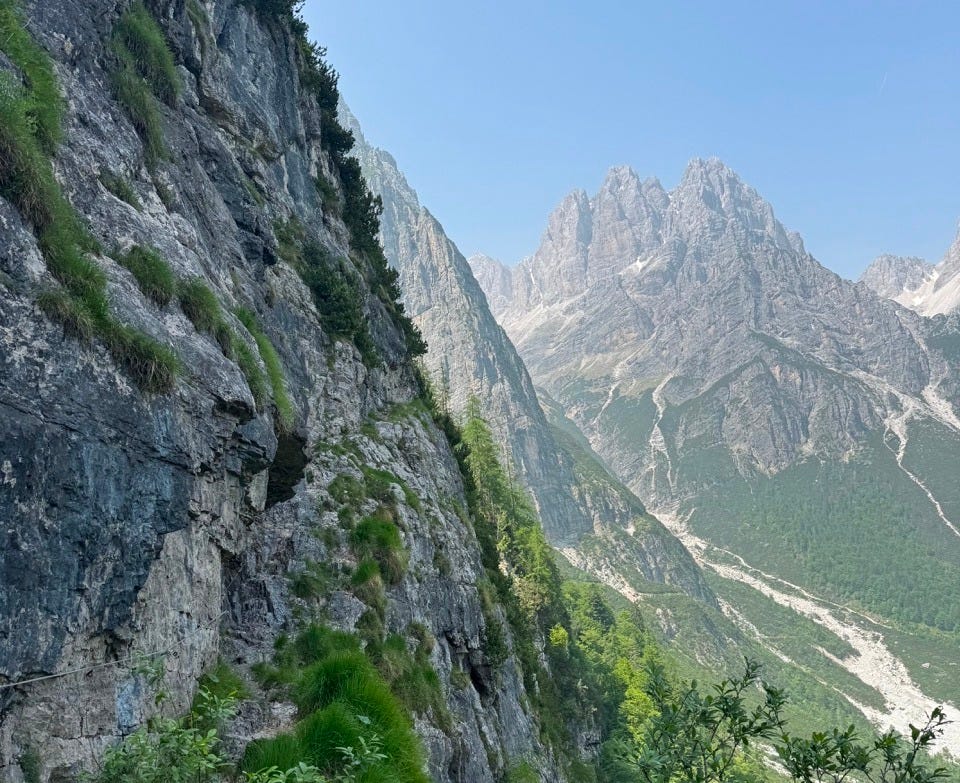Sam Altman, CEO of OpenAI, writes in his latest blog:
"We are past the event horizon; the takeoff has started."
The world is getting exponentially faster. New AI breakthroughs every day.
2025: Agents.
2026: Novel insights.
2027: Robots in the real world.
And me? Last weekend Ben, my husband, and I just drove south. No plan. No app. No prompt.
This is my small rebellion against "The Gentle Singularity" - Altman's term for how the AI revolution is already racing ahead, yet feels surprisingly normal because we humans adapt so quickly.
After months of daily AI use, I had what you might call "decision fatigue" - exhaustion from too many choices. My brain was tired from constant optimizing, selecting, refining.
Which prompt? Which tool? Which of ten AI-generated alternatives?
Altman is right:
"Wonders become routine, and then table stakes."
What was impossible yesterday is standard today.
But at some point I thought: What if I don't want everything to get faster?
Ben and I agreed immediately: Road trip. Timmelsjoch instead of Brenner Pass. Scenery over efficiency.
Eventually we ended up in Molveno, Italy.
The hotel owner recommended a hike: "Pradel, then Rifugio Selvata. Beautiful route. I take my five-year-old there."
So off we went. With a paper hiking map in hand. No Komoot. No ChatGPT research about exposed sections.
The Spot
25 degrees, picture-perfect mountain panorama. Then we came around a bend and there it was - the steep drop-off that immediately made my stomach lurch.
Cable wire to hold on to. How cute. Did I mention my fear of heights?
My first thought: If I'd known this beforehand - googled it, checked it, validated it - I would have stayed home.
My second: What kind of crazy father! Then I remembered his Garmin watch. Should have known...
But here I was. So I focused on my breathing. In. Out. Trying to breathe my fear away.
And thought: My daily pull-ups must be good for something. In case the cable snaps or something...
Step by step. I made it.
I literally felt invincible (must have been the massive adrenaline surge). If I'd known what awaited me - I never would have discovered I could do it.
While AI systems make us "two or three times more productive" according to Sam Altman, I sought the opposite: consciously being less productive.
Making gut decisions. Tolerating uncertainty. Not immediately checking, optimizing, validating.
My intuition came back online. It had gotten rusty from too much head-work.
Sam Altman writes: "Intelligence too cheap to meter is well within grasp."
I think: Sometimes not knowing is priceless.
Your Slowness Experiment
While the world accelerates, you can consciously slow down:
Spend one day per week without AI
Take a route without Google Maps
Make an important decision without Google/ChatGPT
10 minutes of "just sitting there" - no phone, no plan
Sam Altman is right about his Gentle Singularity. But sometimes our brains need the opposite. In our accelerated world, conscious slowness becomes a luxury.
What will you consciously slow down this week?
With decelerated greetings,
Steffi
P.S.: Ben is already looking at suitable road-trip cars to drive even more mountain passes slowly. I'd prefer bicycle or hiking. But we agree: No highway. No plan. Just go.





